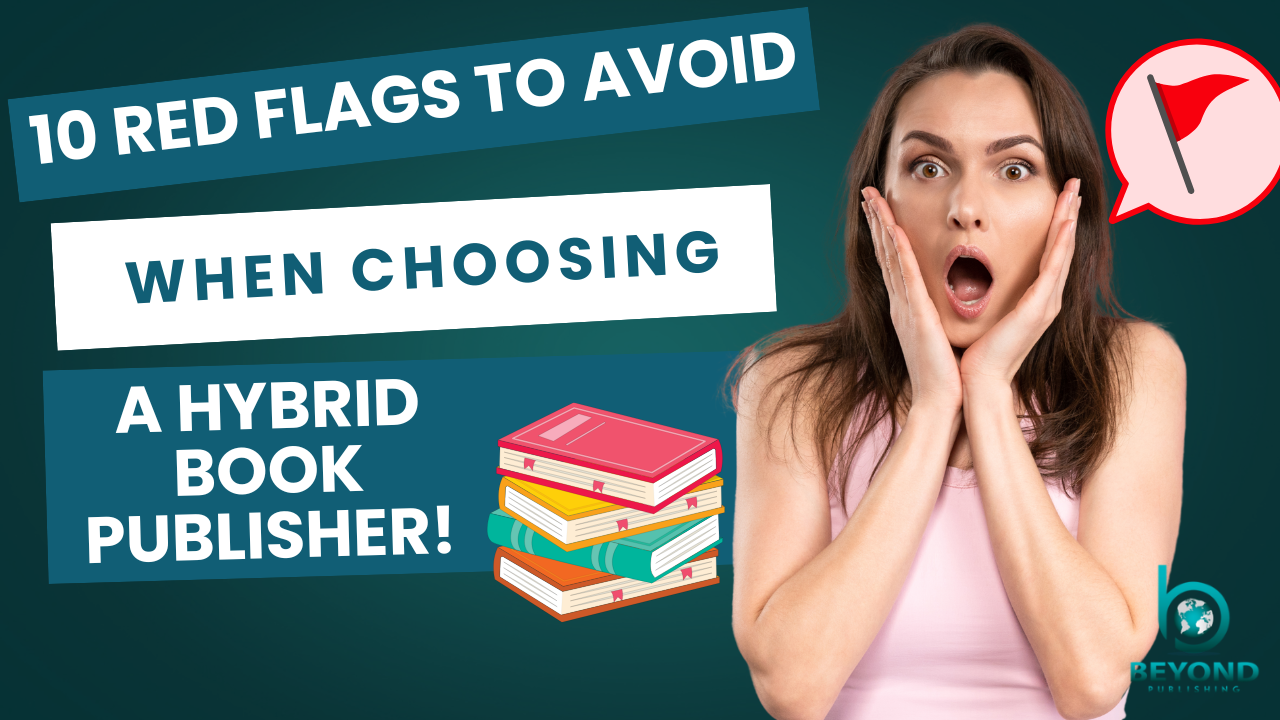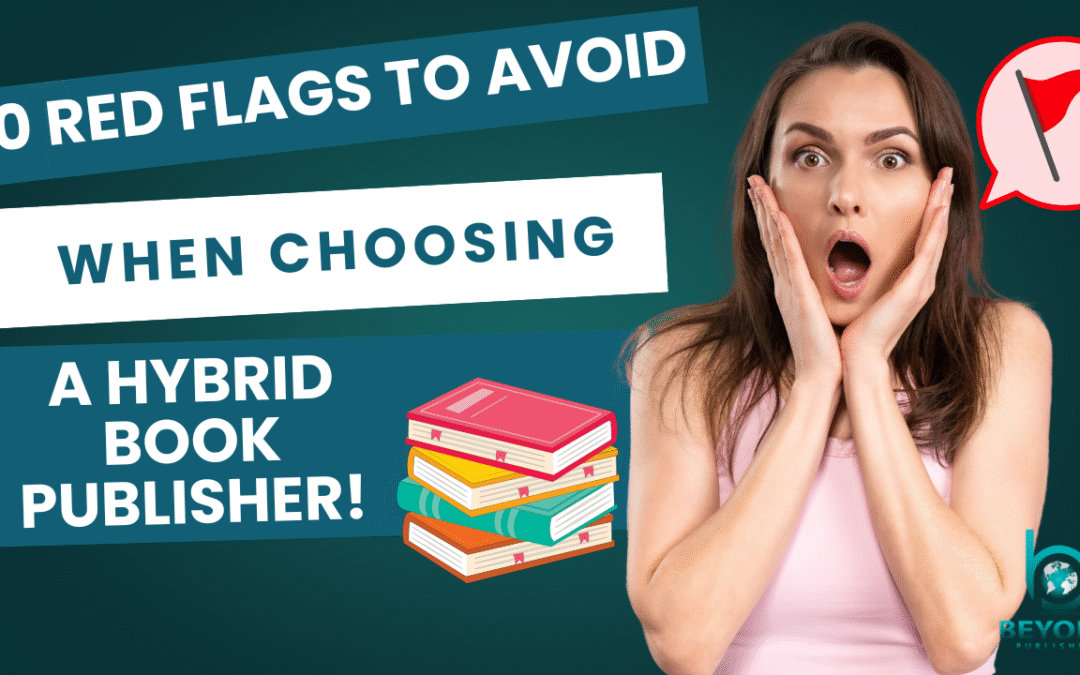10 Red Flags to Avoid When Choosing a Hybrid Publisher

10 Red Flags to Avoid When Choosing a Hybrid Publisher
Publishing your book is one of the most exciting steps in your author journey—but it can also be one of the riskiest. With the rise of hybrid publishing models, more authors than ever are getting their books into print… but not all hybrid publishers are created equal.
Some offer incredible value and support. Others? They’re little more than dressed-up vanity presses preying on first-time authors.
If you’re evaluating hybrid publisher reviews or wondering how to choose a book publisher you can actually trust, here are 10 red flags to watch out for before you sign that contract.
🚩 1. They Guarantee Bestseller Status
No one—not even the biggest traditional publishers—can “guarantee” a bestseller. If a hybrid publisher promises to make your book a New York Times or Amazon bestseller with no clear strategy, it’s a marketing gimmick at best—and a scam at worst.
✅ Green Flag: Reputable publishers talk about building long-term visibility, not overnight miracles.
🚩 2. No Transparency in Pricing
Legitimate hybrid publishers provide detailed pricing up front, with itemized services. If a company dodges questions about costs or gives you a vague “package,” run.
✅ Green Flag: Look for clear breakdowns of editing, cover design, ISBN registration, marketing, and distribution.
🚩 3. No Real Distribution or Bookstore Access
If they claim your book will be “available in all major bookstores,” make sure they clarify the difference between available for order and stocked on shelves. Anyone can list your book on Amazon. But do they have relationships with retailers?
✅ Green Flag: Ask about actual distribution channels like IngramSpark or Baker & Taylor.
🚩 4. No Real Publisher Website or Author Portfolio
A legit publisher should have a professional website with examples of recent books, success stories, and contact info. If their site looks like it was made in 2005—or worse, is missing author testimonials—take that as a major warning sign.
✅ Green Flag: Look for a current, active site with author names you can Google.
🚩 5. Pressure Tactics or Time-Limited Offers
If they say things like, “You have to sign today to get this deal,” they’re using high-pressure sales tactics. A reputable publishing partner doesn’t rush you—they support you.
✅ Green Flag: Ethical publishers give you time to review contracts and ask questions.
🚩 6. No Author Rights or You Lose Copyright
Your book = your intellectual property. If the publisher wants you to give up your copyright, it’s a huge red flag. Hybrid publishers work with authors, not take over their work.
✅ Green Flag: You should retain full copyright and control over your content and brand.
🚩 7. Overpriced Marketing Services with No Results
Be wary if the company tries to upsell you expensive marketing services like press releases or blog tours without proving past success. Always ask for case studies or real ROI data.
✅ Green Flag: A good hybrid publisher will help you build your platform, not just sell packages.
🚩 8. Unclear or Missing Contract Terms
If the publishing agreement is vague, missing pages, or full of legalese you can’t understand, it’s not your fault—it’s theirs. A trustworthy publisher will clearly explain the contract in plain language.
✅ Green Flag: Seek legal review before signing anything. Reputable companies encourage this.
🚩 9. Bad or Fake Online Reviews
Always do your homework. Google their name + “reviews” or “scam.” Check platforms like Google, Linkedin and Facebook. Be cautious if all reviews sound overly polished or if complaints go unanswered.
✅ Green Flag: Look for honest author testimonials on third-party sites—not just on their homepage.
🚩 10. They Call Themselves “Hybrid” But Act Like a Vanity Press
A vanity press makes money from the author, not the book’s success. True hybrid publishers share risk, offer professional guidance, and care about your book’s success—not just collecting your fee.
✅ Green Flag: Ask how they define “hybrid.” Make sure they’re invested in results, not just production.
Final Thoughts: Do Your Homework, Protect Your Book
Your book is your legacy—and choosing the wrong publisher can cost you time, money, and credibility. The good news? There are amazing hybrid publishers out there who can help you get published professionally without falling into a scam.
Before you sign any agreement:
-
Google the company name + “scam” or “complaints”
-
Talk to 2–3 of their past authors
-
Compare 2–3 publishing offers
-
Have an attorney review your contract if possible
If you’re unsure, trust your gut. A good hybrid publisher won’t rush you. They’ll partner with you.
About Beyond Publishing
At Beyond Publishing, we’ve helped authors in 67 nations publish over 845 books across every genre. As a full-service hybrid publisher, we offer transparent pricing, global distribution, and author-first partnerships. Our average author publishes four books with us—because we’re in this for the long haul.
Get a free book consult valued at $500 at:
👉 GetPublished.BeyondPublishing.net
What is a Vanity Press vs. a Hybrid Book Publishing Company?
